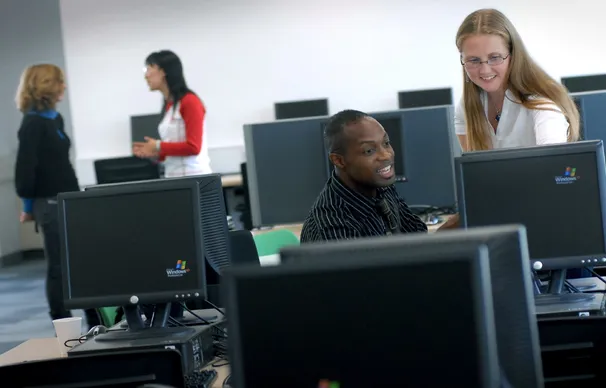PDA in learning spaces: new guidelines
The young adult’s guide to acceptable levels of affection

The young adult’s guide to acceptable levels of affection.
In these stressful (and often highly emotive) pre-exam times it’s understandable and perfectly natural that spending a lot of time in a room with similarly highly strung twenty-somethings for days, nights, and indeed weeks on end can lead to a certain amount of er, pent-up energy.
It is recommended that such energy is released via regular breaks, frequent exercise and of course time set aside to be spent on your own stress-relieving strategy of choice. You know best what works for you personally. However, after numerous complaints have been submitted, it seemed best to additionally gather some guidelines on what is acceptable within the campus study spaces.
PDA level 1
A brief embrace in the form of a hug is a very normal way to express support before or after an exam, or, for close friends, a form of greeting. A hug that has prolonged for two seconds or more however begins to tread questionable waters and it is recommended that such embraces are kept for private spaces for the comfort of everyone in the vicinity.
PDA level 2
Couples or those of particular cultural background may be accustomed to a peck on either the cheek or the mouth in the form of a greeting. Where kept as subtle as possible this is acceptable as a polite display of affection. More than one kiss on the mouth and more than two kisses on the cheek however does generally appear a bit excessive.
PDA level 3
It has been noted that some students find constant unrelenting physical contact with a partner to be a source of moral support. Although those who choose to engage in such hand-holding, gentle stroking or perhaps a hand on a knee are not necessarily to be reprimanded, it is recommended that such activities are kept to an absolute minimum and, where unavoidable, are undertaken with consideration of and respect for those around you. It is also suggested that you might like to learn to be an independent human and try working without receiving continuous physical and ontological reinforcement before you leave university.
PDA level 4 and above
Any activity which is likely to distract those around you or cross the boundary of particular levels of sensuousness above hand-holding should be undertaken with extreme caution. Reports of light hair stroking (and pulling), shoulder massaging, and kisses on necks have all become more frequently witnessed by students, and it is advised that such activities are not permitted anywhere within campus study spaces.
Moving slightly away from a quiet area or indeed working in a loud study space also does not make a passionate making-out session or an extended embrace acceptable. Furthermore, in areas where food and hot drinks can be taken into the rules also do not diminish, and eating each other’s faces will not be tolerated. We urge any students who witness such behaviour of a PDA level four or above to report it immediately to a campus study team member, or fill in a form confidentially and place it in the deposit boxes which will be placed in the vicinity of all study space exits.
It is a pleasure to report that the campus study team has also made the decision to provide relationship services during exam season. Free sexual health advice, contraception and lubricant will all be available to students with the proviso that such services will be made use of at home only. For those recently dumped or eternally single, the study team will also be able to listen to dull stories about revision and any recently watched TV programs on request, in place of the student finding an actual partner. Please ask any of the supervisors for more information on this scheme.
We hope that you find this brief guide helpful in navigating the boundaries of both campus relationships and examinations, and wish you the best of luck in maintaining both of these important, yet hopefully separate, parts of your student experience.